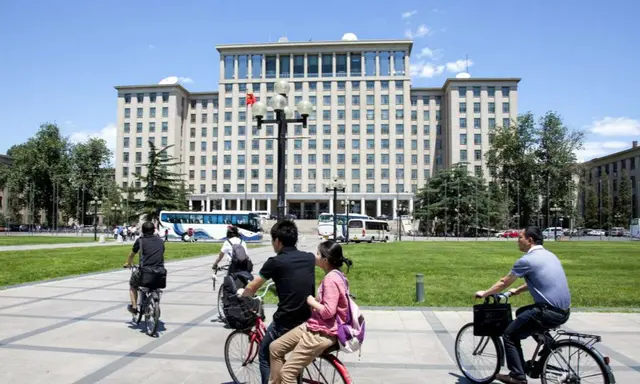The number of Hong Kong students applying to mainland universities has seen a tenfold increase over the past decade, despite the common perception that the city’s youth are wary about studying across the border.
Research by the Post found that the percentage of secondary school graduates applying for places at mainland universities swelled from below 1 per cent in 2006 to a peak of over 7 per cent in 2012, followed by a slight tapering to about 6 per cent last year.
The trend contrasted sharply with anti-mainland sentiment among local students, particularly in 2012 when tens of thousands opposed the government’s plans to start teaching national education in the city’s schools.
A tenth of more than 3,500 candidates last year opted to major in Chinese medicine, while more than half of the applicants went to the top institutions in Guangdong, such as Sun Yat-sen University and Jinan University, which are famous for medical studies, a mainland education consultant said.
Only about 20 students went to Peking University, given that most found such prestigious institutions to be too far away and too hard to get into.
Some top secondary school graduates who chose to “go north” told the Post that it was the mainland’s booming economy and comparatively low cost of living that encouraged them to take the leap of faith. But education experts were uncertain if the trend would continue .
“I have to admit that there are a lot of things to be improved in China and the mainland is not as developed as Hong Kong,” John Li Chun-hei, a second-year student majoring in international relations at Peking University, said. “But there’s great potential for further economic growth.”
Li gave up his plan to study business and economics at the Hong Kong University of Science and Technology in 2014, and chose to go to Beijing instead on the recommendation of his school principal.
He said the mainland, as the world’s second-biggest economy, offered a market that Hong Kong could not match, along with the lure of lower living costs.
“It costs me around 15 yuan (HK$18) to have a nice meal at the school canteen, but in Hong Kong that would cost more than double,” Li said.
Examinations and Assessment Authority statistics show 3,526 local students applied to mainland universities last year, accounting for almost 6 per cent of some 62,200 students taking the Hong Kong Diploma of Secondary Education exams.
More than 400 applied for entrance exams for more than 300 mainland universities, and the remaining thousands joined a scheme to enter universities across the border based on their DSE results.
The figure was up from 518 students in 2006, which accounted for 0.6 per cent of some 76,700 students taking the now-defunct Hong Kong Certificate of Education Examination.
Lo Wing-cheung, principal of Heung To College of Professional Studies and an education consultant on mainland university admission, said Hong Kong students chose universities in Guangdong province because they preferred its shared Cantonese culture and proximity to the city.
“Chinese medicine is the most popular subject among hundreds,” Lo said. “There are a large number of Chinese medicine hospitals in Guangzhou, Shanghai and Beijing.”
He pointed out that the well-established industry on the mainland offered far more internships and job opportunities for students. Hong Kong plans to build its first Chinese medicine hospital to meet a growing demand for graduates in the field.
Lo suggested the growing number of students setting their sights on business schools on the mainland was the result of closer economic ties.
“Peking University and Tsinghua University have also been eyeing more students from Hong Kong in recent years, increasing from a few to about 20 last year,” he said. “They are competing for talent with top universities in Hong Kong.”
But education experts said the cross-border student growth could still be affected by factors such as the slowing economy and anti-mainland sentiment.
Chou Kee-lee, of the Education University of Hong Kong said more students would be going to the mainland if China did well economically and socially in the future. “But the mainland is now experiencing an economic slowdown, the direction of which is still unpredictable,” he said.
(SOUTH CHINA MORNING POST)
 简体中文
简体中文





